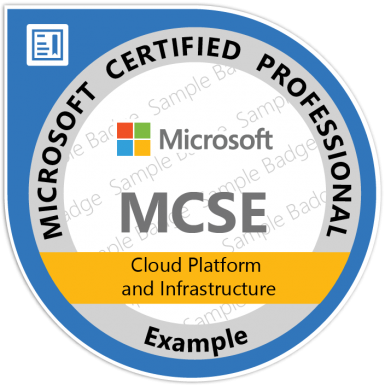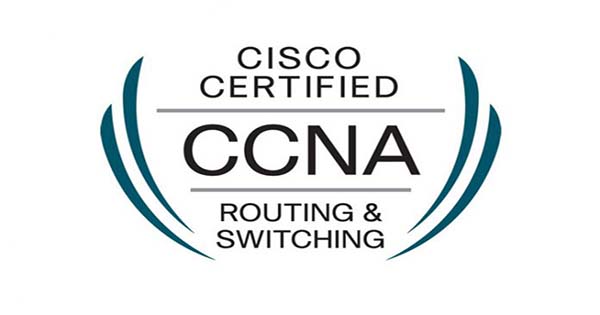
How to Become a DevOps Engineer – A Complete Roadmap
The world is in constant flux because of rapidly emerging technologies. Over the last ten years, computing applications have evolved at an immense velocity, uplifting software development methodologies. Concepts like Agile, Scrum, DevOps, and CI/CD have ruled over the digital economic market. Because of the reason mentioned earlier, the demand for DevOps experts across various designations is increasing.
If you strongly wish to build better software faster, DevOps is the solution. This article will go through a software development methodology that brings everyone to the common table to create a secured code quickly. If you have zero knowledge or have an intermediate level of expertise, don’t worry; we’ll give you a complete roadmap to become a DevOps engineer. Without delay, let’s get started.
What is DevOps?
The word DevOps is the compound of the terms Development (Dev) and Operation (Ops), the meaning of representation of a union or shared viewpoint to the assessment performed by an industry’s application development and IT operations teams. It is the shortcut approach of the System Development Life Cycle (SDLC) and offers continuous delivery with better quality software.
Adopting DevOps creates the culture of gaining the ability to better respond to customer needs, increase confidence in their application, and help achieve business goals faster. People working under DevOps are responsible for changing the software delivery chains, services, job roles, IT tools, and best practices.
While DevOps is not technology so, it applies some common methodologies as follows:
- CI/CD (Continuous Integration/ Continuous Deployment), prioritizing task automation.
- Cloud computing and microservices that support the DevOps tools are included in the methodologies.
- Tools that monitor and supervise Incident management and Configuration management.
Factors of DevOps
DevOps is revolutionizing in such a way that makes it a complex matter. Two depending factors drive the complexity:
- Companies and organizations are forwarding from monolithic architectures to microservice architecture. As DevOps is growing at a higher pace, organizations and firms need more and more DevOps tools per single project.
- The need for more and more tools for a single project increases the number of project-tools integration. It results in the way of adoption of DevOps tools.
Road Map to Learn DevOps Course
As per the present scenario of IT organizations, there is a very high demand for DevOps engineers in the global job market as well as in the job market of Nepal. From a statistical point of view, the number of DevOps has increased by 40-45% (approx.) in the global job market within four years, and it is still growing rapidly. Meanwhile, DevOps is one of the tough level jobs that requires a high skill set and in-depth practical knowledge in the field. The person who wants to be a DevOps Engineer must have to follow a roadmap from his side as follows:
Learning programming language
Learning a programming language is one of the mandatory requirements to initiate a career in DevOps. As more than 700 programming languages have been discovered yet, many people can’t figure out the appropriate one in the state. Learning C, C++, Rust, Go, Ruby, Python, JavaScript, and Node.js is recommended.
Python
Among the recommendation, Python programming language is shortlisted at the top because it is used for backend coding and scripting. It is one of the easiest and most widely used programming languages for enabling automation.
JavaScript
JavaScript is a universal programming language. Unlike Python, JavaScript is not a much more flexible programming language but is legit and valuable to work in a DevOps environment. One of the main features of this programming language is that programmers can implement it for both client-side and server-side scripting. It also has a vast user base, and it is an advantage.
C
C programming language is considered one of the most powerful programming languages. Unlike Python and JavaScript, C language is not easy to implement in the environment of DevOps. C programming language is not highly recommended because it is not a portable programming language. To understand the complexity of syntax, it would be a plus point to learn C-programming language.
Understand the basics of OS concepts
One of the most crucial stages of the roadmap to initiate a career as a DevOps Engineer is to understand the basics of OS (Operating System). Linux Operating System is highly recommended because of its popularity, and most companies use this specific OS for their applications. Gaining expertise and in-depth knowledge will be a plus point for DevOps. Still, you can start with basic concepts such as Process Management, I/O Management, Threads and Concurrency, Memory Management, etc.
Networking and Security
DevOps Engineers are responsible for various servers, data transfer, and connections. Thus, knowledge of networking concepts is becoming mandatory. The primary motive of networking and security in DevOps is to understand how protocols support various request types. The highly recommended Networking protocols to learn to become a DevOps engineer are as below:
- HTTP (HyperText Transfer Protocol)
- HTTPS (HyperText Transfer Protocol Secure)
- SSL (Security Socket Layers)
- SSH (Secured Shell Protocol)
Adopt CI/CD Tools
Adopting and understanding CI/CD Continuous Integration and Continuous Deployment is the central principle for DevOps Engineer. Continuous Integration is responsible for the integration of code by the developers into the main branch of a common repository. And Continuous Deployment is visible to automate the release of that validated code to a repository. Some of the highly reputed CI/CD tools are as below:
- GitHub
- GitLab
- Bamboo
- Jenkins
- CircleCI
Understand Cloud Providers
The majority of applications are hosted on cloud servers. Cost-saving and scalability are the benefits that drive companies to host their application on cloud servers. Another advantage of cloud hosting is that a company doesn’t need its server to host its application. Understanding cloud servers and providers is an important blueprint for becoming a DevOps Engineer. The most crucial topics in which one DevOps need to gain knowledge are Cloud Formation & Architecture, Cloud Service Models, Deployment Models, Virtualization and Cloud Computing, etc. The following cloud providers' abilities are strongly recommended:
- Amazon AWS
- Microsoft Azure
- Google Cloud
- Heroku
Basic Knowledge of Automation, Monitoring, and Other Tools
In DevOps, process automation is considered a primary aspect. The heart of the DevOps process is to automate the DevOps pipeline, including CI/CD cycle, app performance monitoring, infrastructure and configuration, and many others. It is one skill set that matches the knowledge of coding and scripting. The automation and monitoring process helps to interact with the customer timely and helps to increase the overall workflow efficiency. As a DevOps engineer, one is required to gain knowledge of the following tools:
- Git
- Docker
- Chef
- Puppet
- Ansible
7 Key Benefits of DevOps Certification Training
To become a successful DevOps Engineer, one can join the certification training. It helps them to be crystal clear about the whole matter and can fluently move towards their success. There are a lot of benefits of DevOps certification training; some of the shortlisted key benefits of DevOps are as below:
Improved Knowledge and Skill
Learning DevOps is a DevOps engineer's ideology to encourage a new way of thinking and decision-making. The core concept of DevOps revolves around Business Management, Information, and Technology (IT). The fundamentals of DevOps consist expert working team that builds the skill of cross-functional nature. Ranging from business analysts, QA developers, and operation engineers, some experts work on different DevOps designations.
Improved Collaboration and Communication
DevOps has revolutionized software development culture and effective decision-making, which improves transparency and helps in the collaboration of teams. Stakeholders teams participate in the different development processes to break down the barrier between other groups and focus on the common goal in a round-the-clock environment. Cooperation improves team members' communication, enhancing the quality and time-bound delivery.
Better Job Opportunities
DevOps practices have been a trend for many companies because it is a very new concept to the industries. The main advantage of getting certification in the DevOps field is expanding the horizon as an IT professional. It helps you to get a better job opportunity.
Enhances reliability of service
In the culture of DevOps, the satisfaction of the internal and external customers is the great essence of the company. The results must come at a high pace and should be reliable and relevant to changing business trends. The culture of DevOps can make the big project work scattered into sections and delivered separately.
Increases quality of service
Service availability in the absence of error is essential during the development and designing phase. It helps the team members fix the problem collaboratively and return it to an error-free condition. It helps to enhance the quality of service. Such practices uplift the ability of teammates as well as individuals also.
Double successful deployment rates
Programming error is one of the irritating and primary causes of deployment error. As a certified DevOps engineer, Figuring out the programming error at the initial stage is the key to decreasing the chance of deployment failure. If DevOps is certified, the error's recovery time will be minimal.
Possibilities for Career Advancement
The advantage of engaging in projects beyond the normal reach is that workers are exposed to different roles and responsibilities and often encouraged to work further on various projects they get to grips with. The workers earning hyper-focused positions will not impede productivity and suppress team member engagement. This can leads a DevOps engineer to be motivated and gain successful outcomes.
Why DevOps training in TechAxis Nepal?
Want to become an expert DevOps engineer in Nepal? TechAxis, the leading training institute at kumaripati, provides in-depth practical DevOps training in Nepal. The course is designed in such an expert way that leads DevOps enthusiasts to gain success in their upcoming careers. Anyone interested in candidates attending advanced DevOps training gets the following benefits along with many job plus points:
- Instructors are experienced with effective and maximum experience.
- Best course with an affordable fee structure.
- Updated and practical training methodology.
- Easy availability and accessibility of training equipment and materials.
- Facility for internship and job placement opportunities.
- Tips for personal growth objectives.
- Enhance the capability of trainees to compete in the IT market.
DevOps Traning Outline in TechAxis
TechAxis provide premium DevOps training to sharpen and enhance one skillfully to compete in the global job market. Our practical teaching methodology help to figure out your possible wrong approach in real-time. As our instructors are highly qualified in the field of teaching, by their expertise they will provide you with personal growth objectives which help to give a fixed shape for your career. Here is the training course outline you can check out:
- DevOps Introduction
- Linux for DevOps
- Server Installation
- Git - Version Control System.
- Apache & Nginx - Web Server for PHP & Python-Based Applications
- Jenkins – Continuous Integration & Continuous Deployment (CI/CD)
- Creating CI/CD Pipeline
- Ansible – Automation Tool
- Docker – Containerization Platform
- Docker & Ansible Together – Build and Automate, Deployment of Application
- Continuous Testing
- Kubernetes - Scaling & Managing Containerized Applications
- Nagios – System Monitoring
- AWS Cloud – IaaS
Conclusion:
At the wind-up, we hope this complete roadmap to become a DevOps engineer will help you to go further in your career. If you feel that any in-depth instruction makes you bolt in your field, feel free to join TechAxis.











